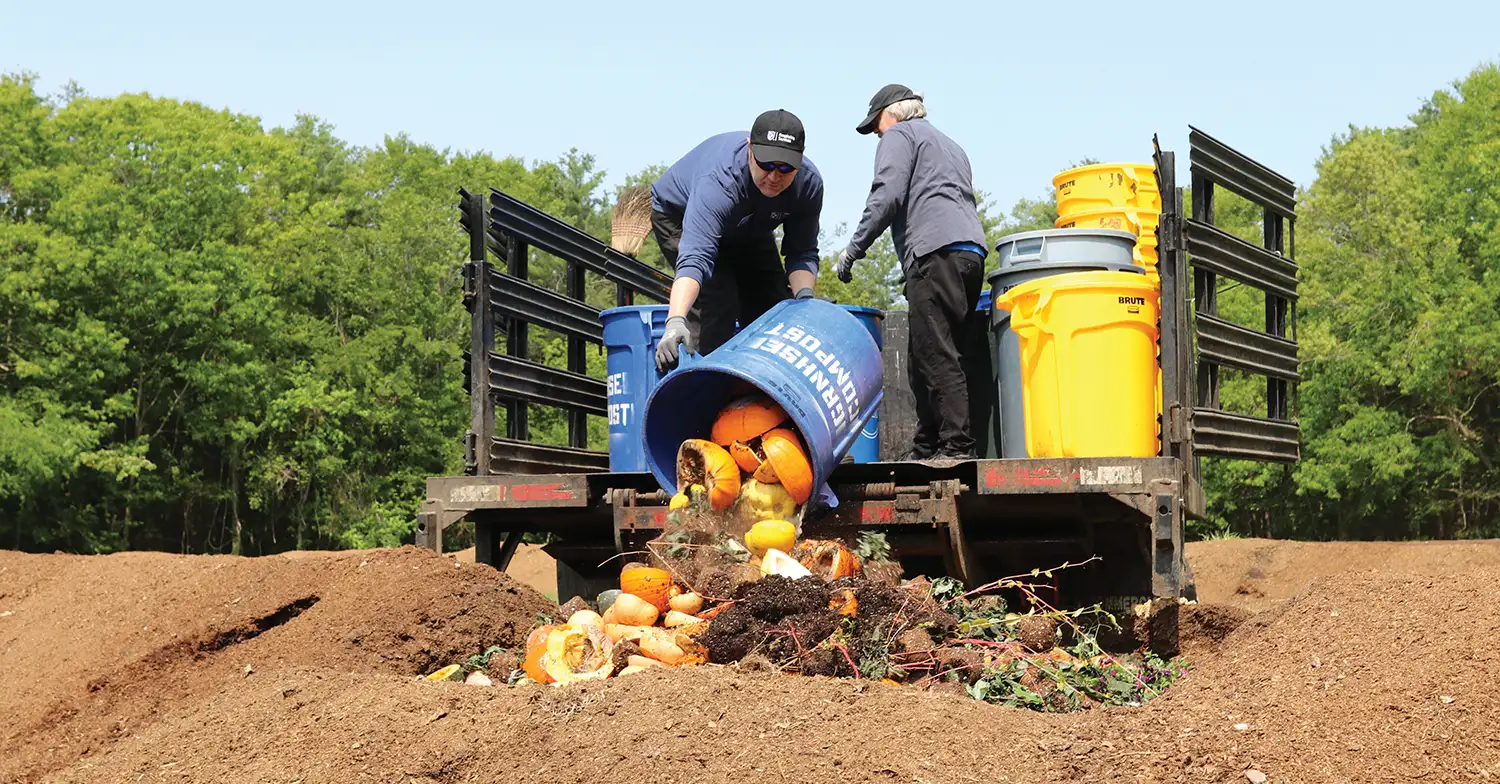Waste Not
The university’s composting program, which has been around since the mid-1990s, starts in UNH’s dining halls, where the emphasis is on reducing the overall waste streams by providing tools and information that minimize pre- and post-consumer waste (i.e., the amount of waste returned on diners’ plates and trays). Some of these methods include purchasing denuded (fat-trimmed) beef and growing some of the produce right on campus, including at two high tunnels managed by the Farm to YoU NH program. On the post-consumer side, methods include signage that encourages the importance of portion control to reducing waste, the use of serving spoons that are sized for single portions of the food they dish out and the Wildcat Plate with information on portion sizes.
During the academic year, each dining hall sends about six to eight 55-gallon buckets a day of compostable waste to the Kingman Research Farm, run by UNH Agricultural Experiment Station.
Then the material gets started on its composting journey: UNH farm manager Evan Ford and his team mix bedding and manure from UNH’s equine facilities with the compostable waste, turning the material to allow for greater aeration and temperature distribution. After a year, the compost is complete and ready to be applied to the research fields at Kingman and the Woodman Horticultural Research Farm.
Those involved believe the program can be a template for municipalities to adopt.
Says Anton Bekkerman, director of the NH Agricultural Experiment Station and an associate dean in the College of Life Sciences and Agriculture: “The program here at UNH really highlights that even without large investments into infrastructure and labor that a composting program can be implemented by the Granite State’s smallest towns and villages to ultimately reduce waste and provide a nutrient-rich additive to gardens and farms.”

a day of compostable waste to the Kingman Research Farm, run by UNH Agricultural Experiment Station
